2022 Acquisition Highlights
December 2022
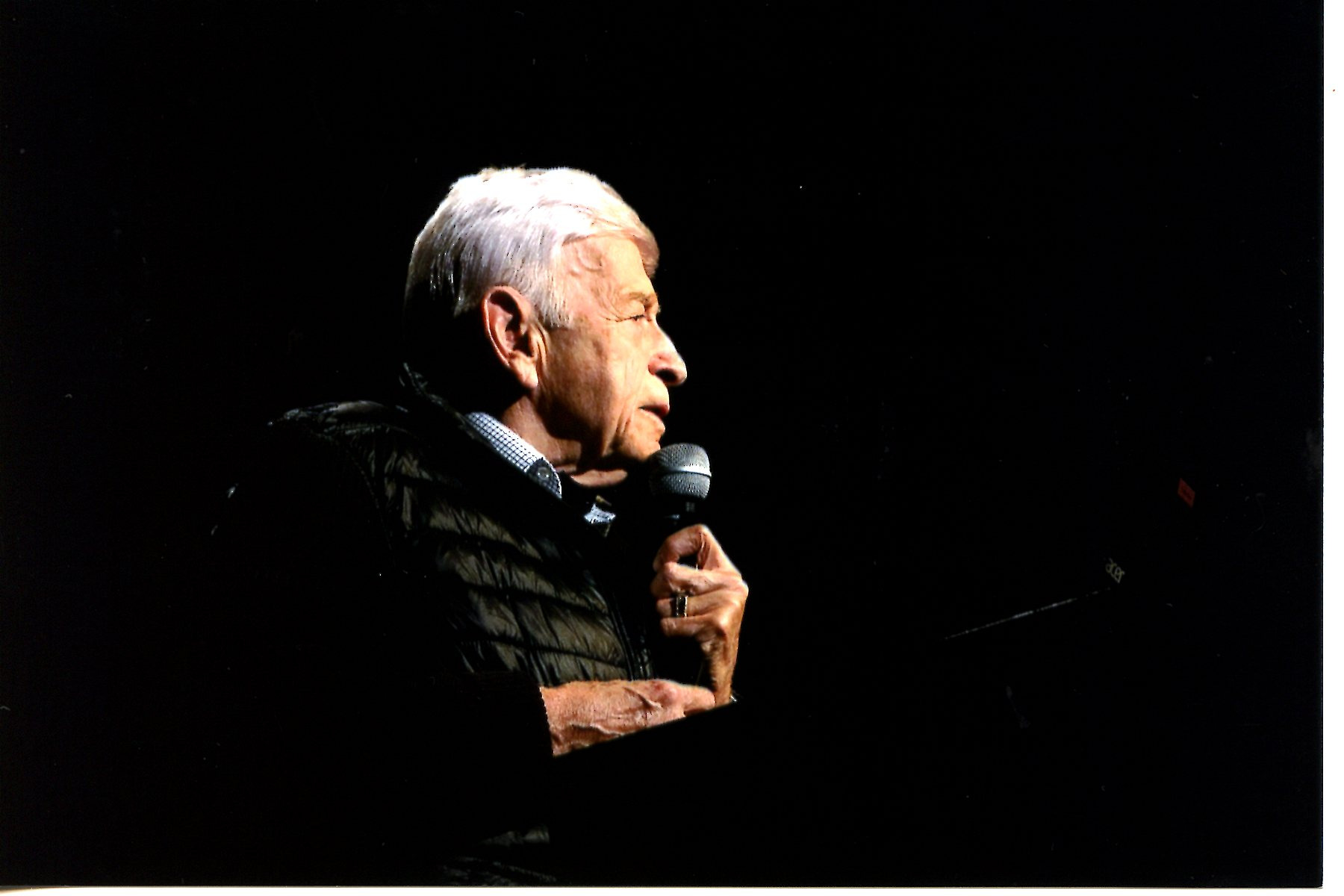 Award-winning memoirist, Holocaust survivor, and speaker, Max Eisen died at the age of ninety-three on 7 July 2022. Max's memories had already been captured in his 2016 memoir, By Chance Alone, which won the Canada Reads competition in 2019, but there remained a significant volume of material documenting his life after the war that had gone largely unpublished. This material, which comes out to five boxes, consists of advertisements for Max's speaking engagements, brochures, certificates, correspondence (cards, emails, letters), honorary degrees, interviews, and photographs. Of special note is the handwritten manuscript of Max's memoir.
Award-winning memoirist, Holocaust survivor, and speaker, Max Eisen died at the age of ninety-three on 7 July 2022. Max's memories had already been captured in his 2016 memoir, By Chance Alone, which won the Canada Reads competition in 2019, but there remained a significant volume of material documenting his life after the war that had gone largely unpublished. This material, which comes out to five boxes, consists of advertisements for Max's speaking engagements, brochures, certificates, correspondence (cards, emails, letters), honorary degrees, interviews, and photographs. Of special note is the handwritten manuscript of Max's memoir.
The donation, which was made by Max Eisen's spouse, Ivy Eisen, and sons, Larry and Ed Eisen, was facilitated by Dr. Amanda Grzyb of Western University, who worked closely with Max in putting his story to paper. (Max would later say, "It [By Chance Alone] would not be the book it is today without her.") Best of all, the materials making up the donation have all been digitized, thanks to a grant from the Faculty of Information and Media Studies (FIMS) at Western University, and thus researchers will be able to consult them online without having to make an appointment with the OJA. The digitization was led by Dr. Melissa Adler in collaboration with Dr. Grzyb and five FIMS students. The OJA is grateful to the Eisen family and Western University for giving us the opportunity to preserve a significant piece of Max's legacy.
November 2022
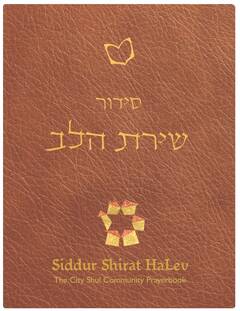 Typically, the OJA does not accept donations of published books or religious texts, so why did we accept a copy of City Shul's new siddur, Siddur Shirat HaLev? Before we answer that question, this might be a good opportunity to explain why the OJA, as a community archives, does not typically accept published books or religious texts.
Typically, the OJA does not accept donations of published books or religious texts, so why did we accept a copy of City Shul's new siddur, Siddur Shirat HaLev? Before we answer that question, this might be a good opportunity to explain why the OJA, as a community archives, does not typically accept published books or religious texts.
Unlike libraries, archives are in the business of acquiring, preserving, and making available one-of-a-kind materials, usually records. Published items, such as albums, books, and movies, can be replaced if lost, which is why libraries circulate their materials. The reason archives do not circulate their materials is not because they are stingier than libraries, but, rather, because archival materials cannot be replaced if lost. (There are, of course, exceptions, such as rare book libraries and reference libraries, but we're speaking in generalities here.)
By and large, what archives acquire and preserve are historical records. Historical records are primary sources that are used by researchers to understand the past. They are valuable because they provide evidence of what individuals, families, and organizations did. In addition to providing evidence of past actions, they are often information rich, which matters to genealogists seeking to know as much as possible about their family history. A ketubah would be an example of a historical record that, in addition to providing evidence of an action, might provide additional information, such as where a couple was married, the name of the synagogue where the wedding was held, and the name of the rabbi who officiated the wedding.
The reason the OJA does not acquire religious texts, as distinguished from records that might be produced in a religious context, is that they seldom provide evidence of actions. Moreover, they tend to be generic. The Reform siddur Mishkan T'filah, for example, is used by Reform temples across the continent. It is widely available for purchase and does not shed light on Ontario's Jewish communities, even if it is used by some Reform temples in Ontario. That is why we usually decline siddurim.
This brings us back to our original question: why did we accept a copy of City Shul's new siddur, Siddur Shirat HaLev? The answer is that this siddur is unique to City Shul. Although it was designed by Baruch Sienna and edited by Rabbi Goldstein, the siddur was really the creation of the entire congregation. Since the siddur is only used at City Shul, it reflects the values of a specific synagogue in Ontario at a specific moment in its history. Finally, unlike the Mishkan T'filah, City Shul's siddur is not widely available. For all these reasons, it made sense for the OJA to acquire it.
October 2022
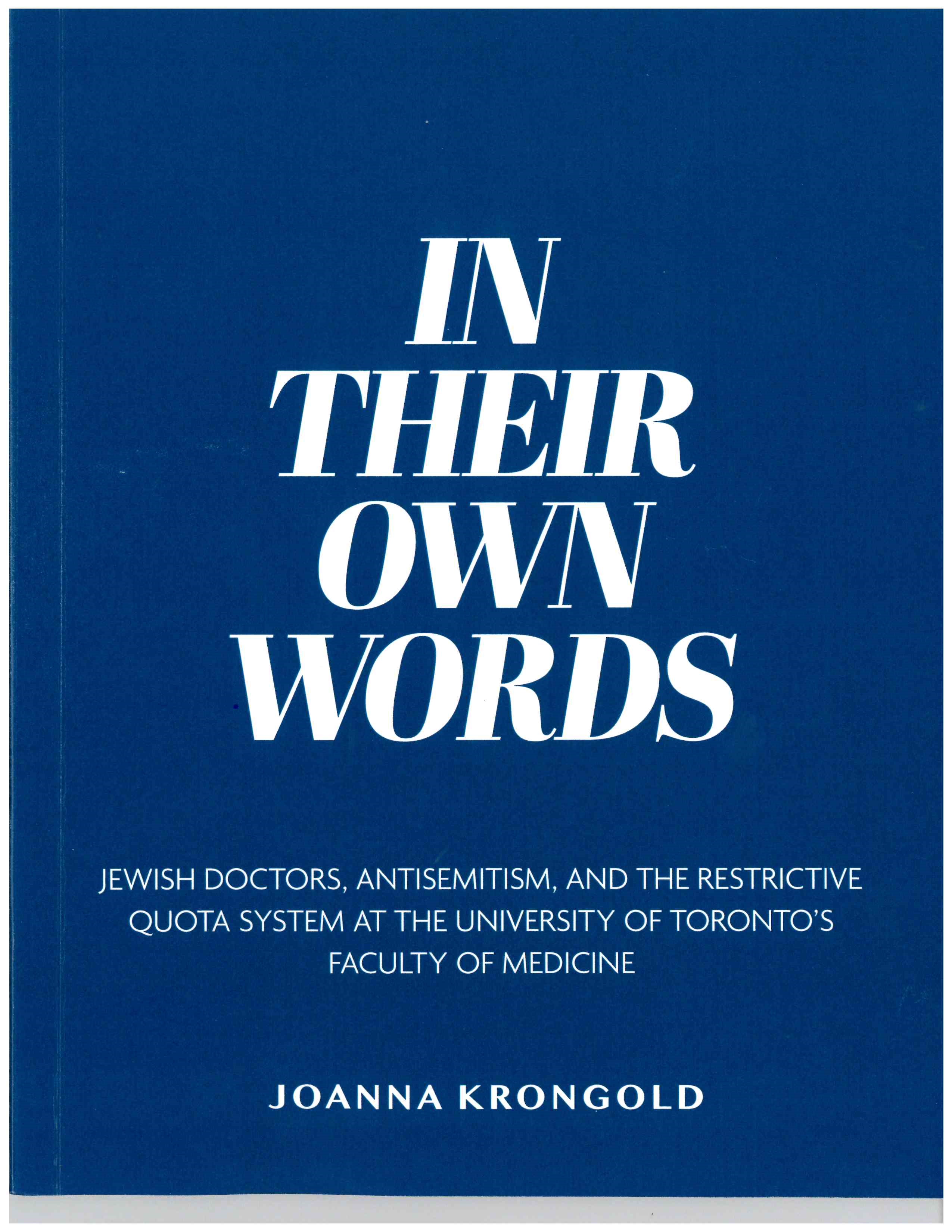 It's not every month that one of the OJA's archivists makes an archival donation to the OJA, but that's what happened in October. On 29 September 2022, Temerty Medicine held an event at Innis Town Hall titled Reflecting on Historic Jewish Learner Quotas in Toronto Medical Education. Present for the event were senior physicians and their families, as well as invited guests, including one of the OJA's archivists, Michael Friesen. It was at the event that Michael acquired a copy of Dr. Joanna Krongold's publication "In Their Own Words: Jewish Doctors, Antisemitism, and the Restrictive Quota System at the University of Toronto's Faculty of Medicine." (The publication was made available for free to those attending.) Michael was pleased to donate his copy to the OJA, because researchers often contact the OJA wanting to know more about historic antisemitism in Toronto's health professions and the quota system in particular. The OJA looks forward to working with Dr. Krongold in the future to ensure that the stories of Jewish physicians who faced discrimination are not forgotten.
It's not every month that one of the OJA's archivists makes an archival donation to the OJA, but that's what happened in October. On 29 September 2022, Temerty Medicine held an event at Innis Town Hall titled Reflecting on Historic Jewish Learner Quotas in Toronto Medical Education. Present for the event were senior physicians and their families, as well as invited guests, including one of the OJA's archivists, Michael Friesen. It was at the event that Michael acquired a copy of Dr. Joanna Krongold's publication "In Their Own Words: Jewish Doctors, Antisemitism, and the Restrictive Quota System at the University of Toronto's Faculty of Medicine." (The publication was made available for free to those attending.) Michael was pleased to donate his copy to the OJA, because researchers often contact the OJA wanting to know more about historic antisemitism in Toronto's health professions and the quota system in particular. The OJA looks forward to working with Dr. Krongold in the future to ensure that the stories of Jewish physicians who faced discrimination are not forgotten.
September 2022
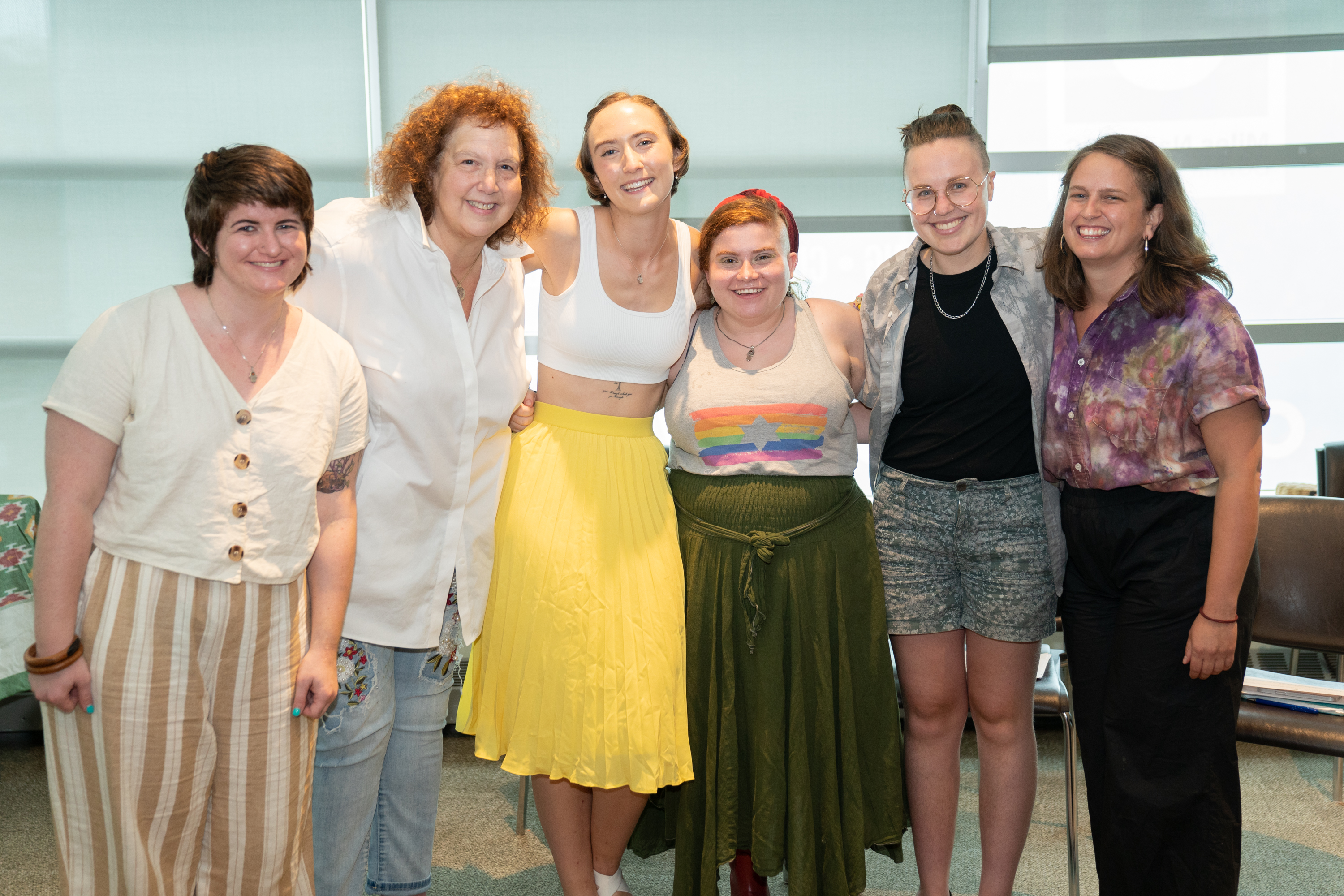 On 21 August 2022, the Miles Nadal JCC (MNjcc) hosted a Queer Jewish Incubator community simcha. The event provided an opportunity to celebrate the first-ever Queer Jewish Incubator cohort, which is made up of Ola Skudlarska, Sheri Ahava Cohen, Cailan Bodnar, Toby King, Sadie Epstein-Fine, and Gael Nissim Cohen (not pictured). The MNjcc's LGBTQ+ at the J group is supporting these individuals in "initiating an ‘exploration’ [aimed at] growing the participant’s [sic] connection to queerness and Jewishness or strengthening the fabric of queerness and Jewishness in Toronto." Archivist Michael Friesen was on hand to witness the celebration; afterwards, Cara Gold (pictured on the right), manager, Jewish community development at the MNjcc, donated digital copies of photos taken at the event to the OJA.
On 21 August 2022, the Miles Nadal JCC (MNjcc) hosted a Queer Jewish Incubator community simcha. The event provided an opportunity to celebrate the first-ever Queer Jewish Incubator cohort, which is made up of Ola Skudlarska, Sheri Ahava Cohen, Cailan Bodnar, Toby King, Sadie Epstein-Fine, and Gael Nissim Cohen (not pictured). The MNjcc's LGBTQ+ at the J group is supporting these individuals in "initiating an ‘exploration’ [aimed at] growing the participant’s [sic] connection to queerness and Jewishness or strengthening the fabric of queerness and Jewishness in Toronto." Archivist Michael Friesen was on hand to witness the celebration; afterwards, Cara Gold (pictured on the right), manager, Jewish community development at the MNjcc, donated digital copies of photos taken at the event to the OJA.
August 2022
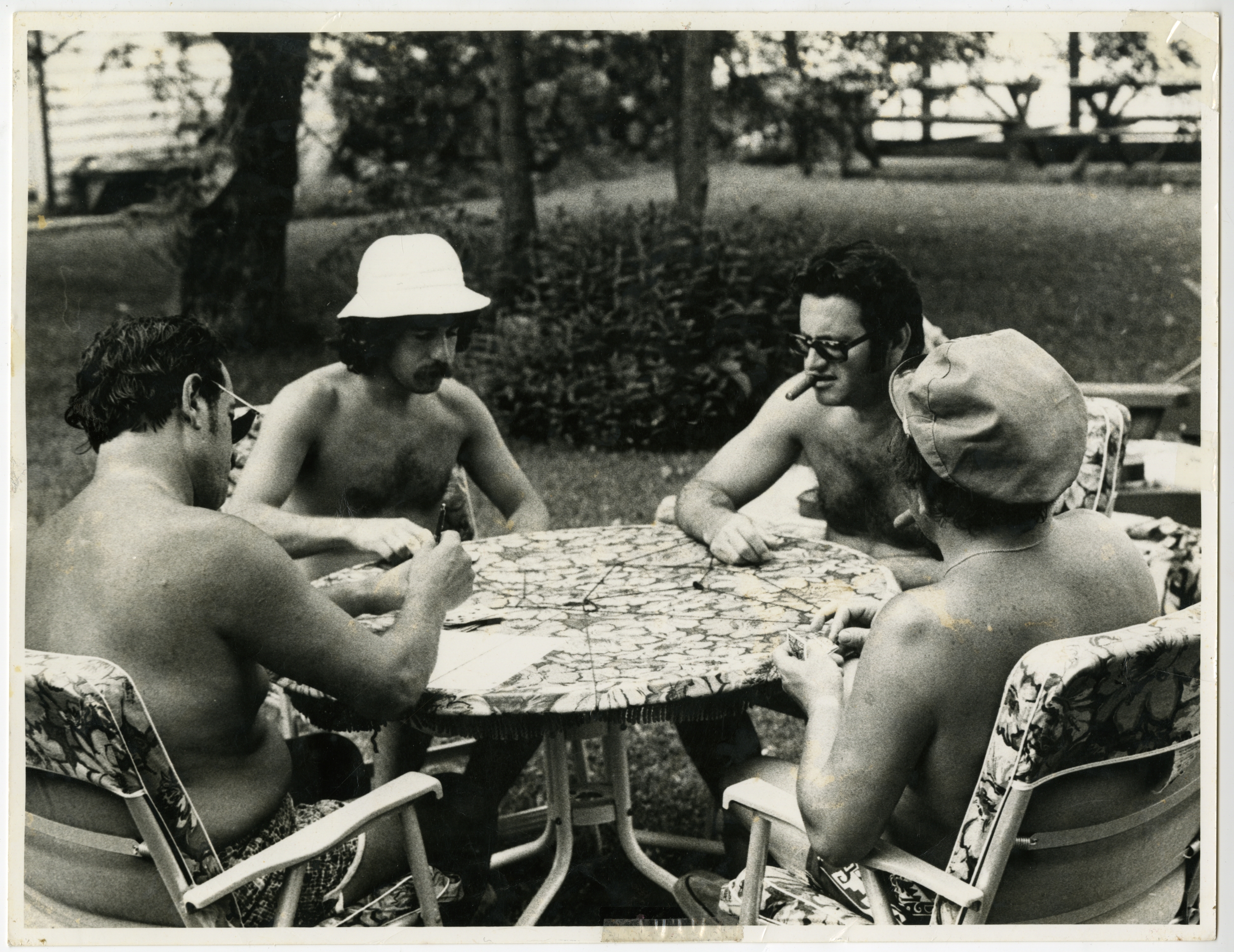 August's donation comes courtesy of Harvey Blankenstein. Maybe we're biased—the OJA is named after the Blankenstein family after all—but we were thrilled to receive Harvey's donation of photographs and textual records documenting the family. The records in this accession document the Blankenstein family's immigration to Canada and its eventual settlement in Willowdale, which is located just north of Bathurst Manor. The photograph on the left shows Jack Szmeiser (bottom right), Abe Blankenstein (top right), Harley Mintz (top left), and Al Mintz (bottom left) playing poker outside. Our takeaway? Let's all enjoy summer while we still can!
August's donation comes courtesy of Harvey Blankenstein. Maybe we're biased—the OJA is named after the Blankenstein family after all—but we were thrilled to receive Harvey's donation of photographs and textual records documenting the family. The records in this accession document the Blankenstein family's immigration to Canada and its eventual settlement in Willowdale, which is located just north of Bathurst Manor. The photograph on the left shows Jack Szmeiser (bottom right), Abe Blankenstein (top right), Harley Mintz (top left), and Al Mintz (bottom left) playing poker outside. Our takeaway? Let's all enjoy summer while we still can!
July 2022
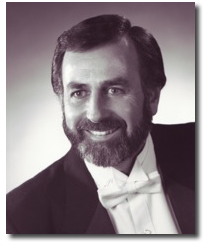 Paul Kowarsky is a man of the world. Born in South Africa, his musical studies have taken him to Tel Aviv, Johannesburg, and Cincinnati, while his work in voice production has taken him to New York and Toronto. From 1980 to 2001, he served as hazan (cantor) of Canada's largest Conservative congregation, Beth Tzedec. In addition to his work as a hazan, he served as a presiding justice of peace in the Ontario Court of Justice. In July 2022, the OJA was able to acquire a significant volume of records documenting Cantor Kowarsky's career. These were picked up directly from the cantor's residence. Included in the donation are the cantor's musical commisions, personal CDs, and recordings by his children.
Paul Kowarsky is a man of the world. Born in South Africa, his musical studies have taken him to Tel Aviv, Johannesburg, and Cincinnati, while his work in voice production has taken him to New York and Toronto. From 1980 to 2001, he served as hazan (cantor) of Canada's largest Conservative congregation, Beth Tzedec. In addition to his work as a hazan, he served as a presiding justice of peace in the Ontario Court of Justice. In July 2022, the OJA was able to acquire a significant volume of records documenting Cantor Kowarsky's career. These were picked up directly from the cantor's residence. Included in the donation are the cantor's musical commisions, personal CDs, and recordings by his children.
June 2022
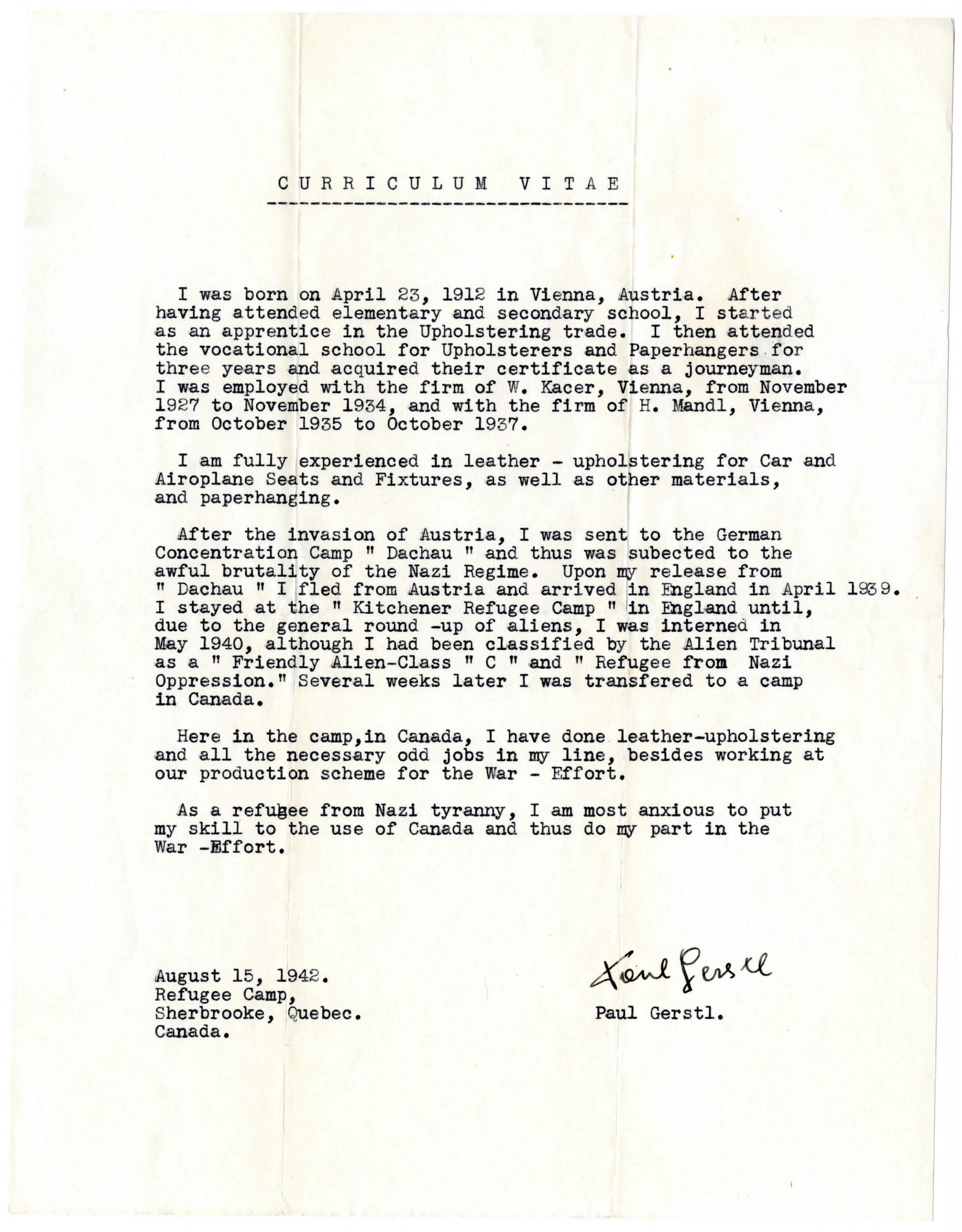 July's acquisition documents Katherine "Kathy" Sharon Gerstl and her family. Kathy was born in 1955 to Paul Gerstl and Goldene Gerstl (née Sniderman). She was a dietitian, having obtained her degree from Ryerson Polytechnical Institute and done her internship at Toronto General Hospital and St. Michael's Hospital in Toronto. Her father, Paul, was born in Vienna, where he worked as an upholsterer. Detained in Dachau in 1938, he fled to England upon his release, arriving in England in 1939. In May 1940, he was interned; several weeks later, he was moved to a refugee camp in Canada, only being released in November 1942. The document shown here is Paul's curriculum vitae, which touches upon his wartime experiences; it also touches upon some of the work he did in Canada, including leather upholstering and various odd jobs.
July's acquisition documents Katherine "Kathy" Sharon Gerstl and her family. Kathy was born in 1955 to Paul Gerstl and Goldene Gerstl (née Sniderman). She was a dietitian, having obtained her degree from Ryerson Polytechnical Institute and done her internship at Toronto General Hospital and St. Michael's Hospital in Toronto. Her father, Paul, was born in Vienna, where he worked as an upholsterer. Detained in Dachau in 1938, he fled to England upon his release, arriving in England in 1939. In May 1940, he was interned; several weeks later, he was moved to a refugee camp in Canada, only being released in November 1942. The document shown here is Paul's curriculum vitae, which touches upon his wartime experiences; it also touches upon some of the work he did in Canada, including leather upholstering and various odd jobs.
May 2022
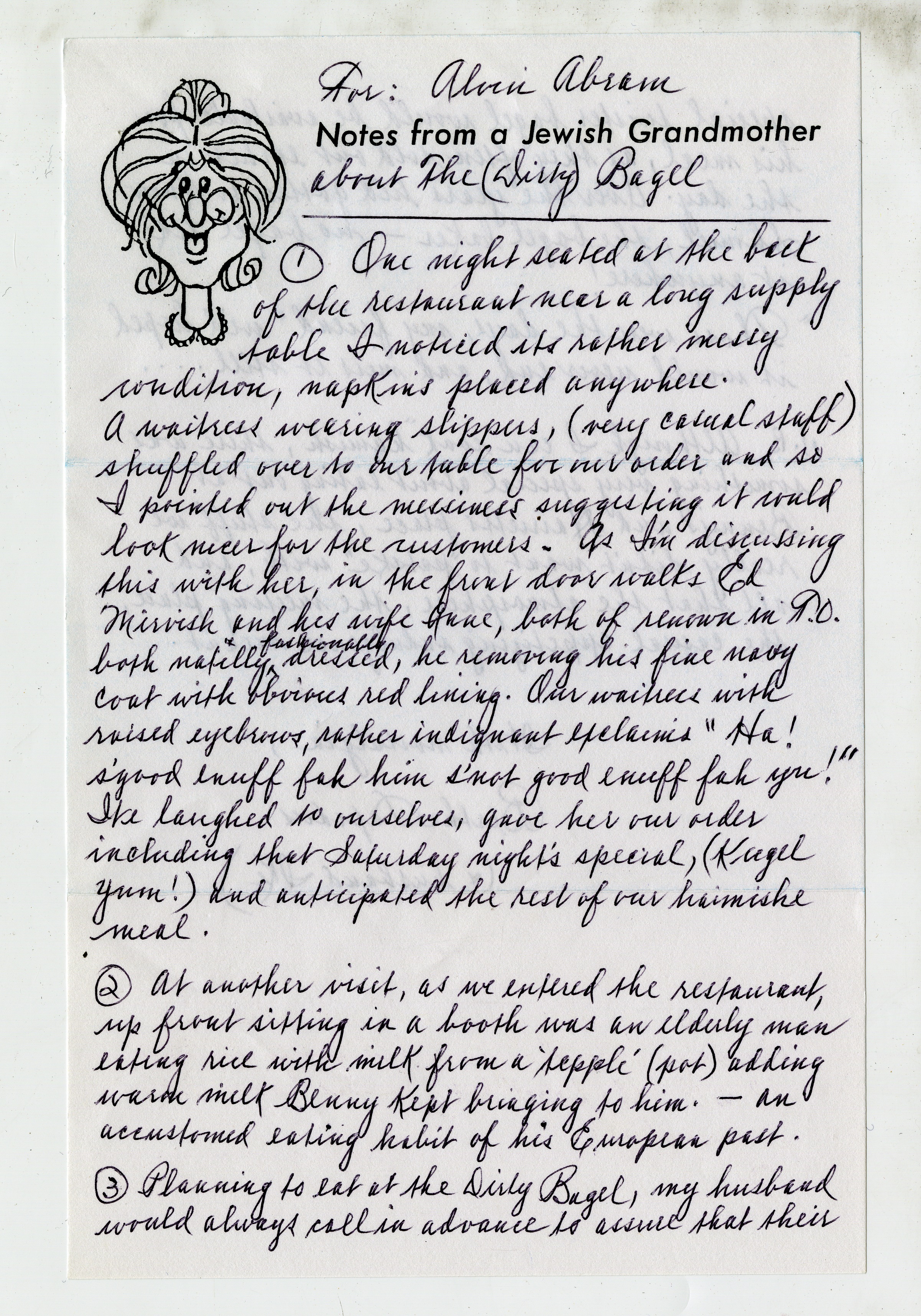 Author, writer, and family man Alvin Abram (b. 1936) passed away on 26 August 2021. And while Alan is dearly missed by his loved ones, the OJA is pleased to be able to preserve a piece of his literary legacy with this donation that arrived on 11 May 2022 from Alvin's daughter Lisa. The donation consists of material documenting Alvin's research on the restaurant known as "The Dirty Bagel." Included in the donation are photographs of the interior of the restaurant taken by Lisa, handwritten testimonials by patrons, and a binder of Alvin's research notes. Shown here is a note relating a story about the restaurant's messiness, which did not prevent famous Torontoinians like Anne and Ed Mirvish from patronizing the business.
Author, writer, and family man Alvin Abram (b. 1936) passed away on 26 August 2021. And while Alan is dearly missed by his loved ones, the OJA is pleased to be able to preserve a piece of his literary legacy with this donation that arrived on 11 May 2022 from Alvin's daughter Lisa. The donation consists of material documenting Alvin's research on the restaurant known as "The Dirty Bagel." Included in the donation are photographs of the interior of the restaurant taken by Lisa, handwritten testimonials by patrons, and a binder of Alvin's research notes. Shown here is a note relating a story about the restaurant's messiness, which did not prevent famous Torontoinians like Anne and Ed Mirvish from patronizing the business.
This is not the first donation to arrive which documents Alvin and his interests: in 2016, Alvin donated 35 cm of textual records, 5 cm of photographs, and 1 VHS tape documenting his family history and publishing career. Several more donations followed in the years to come.
April 2022
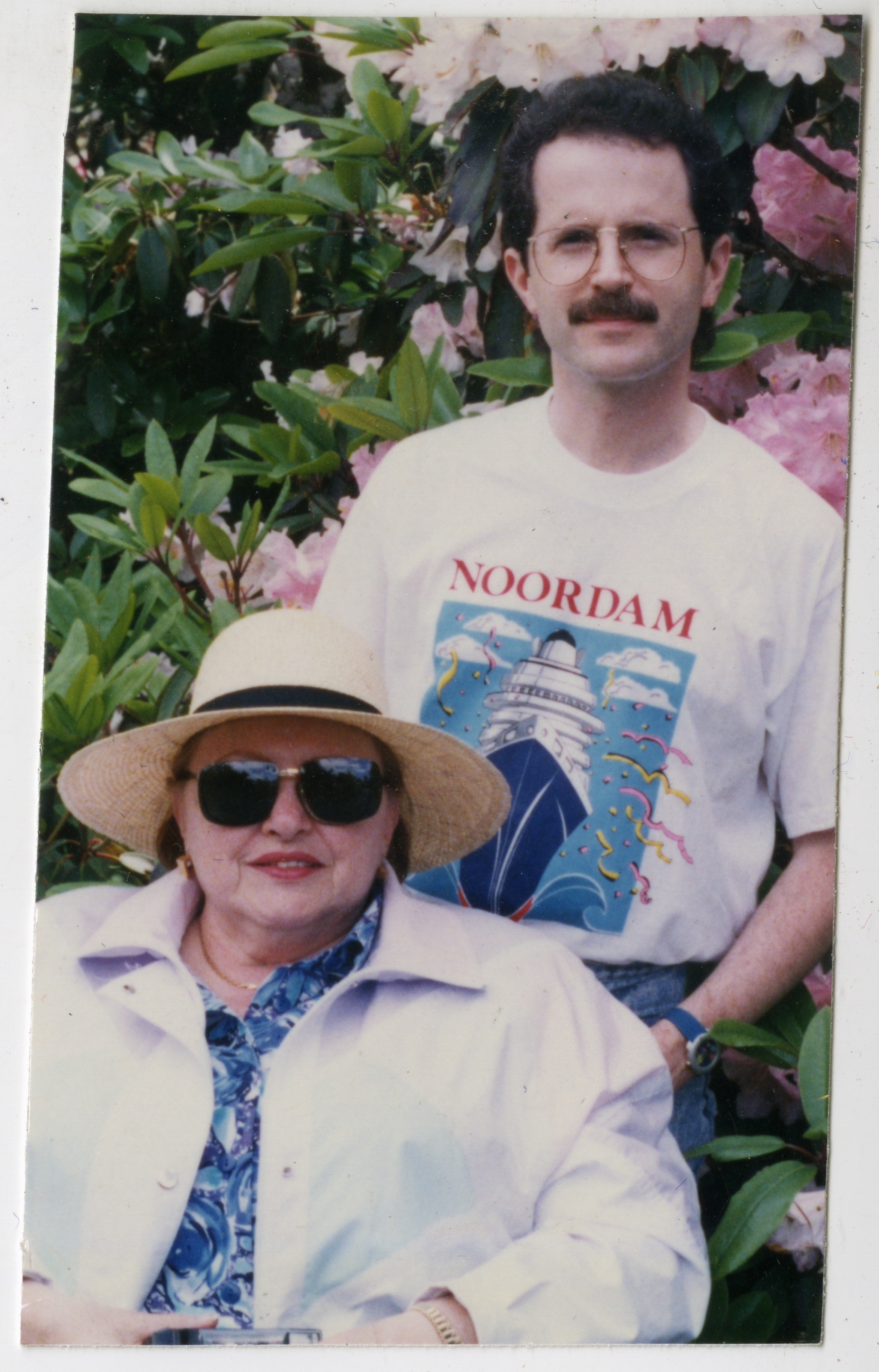 In April, Mark Drutz donated materials documenting the Drutz-Quitt family. Included in the accession are some sixty photographs documenting various festive occassions (birthdays, weddings, Pride parades) and important people and four-legged friends in Mark's life. (As a dog lover and English major, this archivist particularly delighted in learning Mark had named one of his dogs Virginia Woof!) These photographs are complemented by several folders of textual records, which document Mark's professional life and activities outside work. Of note is a Ha Mishpacha newsletter from November 1977. (Ha Mishpacha was the first gay-Jewish group in Toronto, and Mark was a founding member.) And while the accession is full of photographs of happy times, such as Mark's exchange of rings with his husband Jonathan Lau, it also documents sadder moments, including his late brother Paul's battle with AIDS. The OJA is all the more pleased to receive this donation, since it is one of the OJA's first to document a Jewish LGBTQ family.
In April, Mark Drutz donated materials documenting the Drutz-Quitt family. Included in the accession are some sixty photographs documenting various festive occassions (birthdays, weddings, Pride parades) and important people and four-legged friends in Mark's life. (As a dog lover and English major, this archivist particularly delighted in learning Mark had named one of his dogs Virginia Woof!) These photographs are complemented by several folders of textual records, which document Mark's professional life and activities outside work. Of note is a Ha Mishpacha newsletter from November 1977. (Ha Mishpacha was the first gay-Jewish group in Toronto, and Mark was a founding member.) And while the accession is full of photographs of happy times, such as Mark's exchange of rings with his husband Jonathan Lau, it also documents sadder moments, including his late brother Paul's battle with AIDS. The OJA is all the more pleased to receive this donation, since it is one of the OJA's first to document a Jewish LGBTQ family.
March 2022
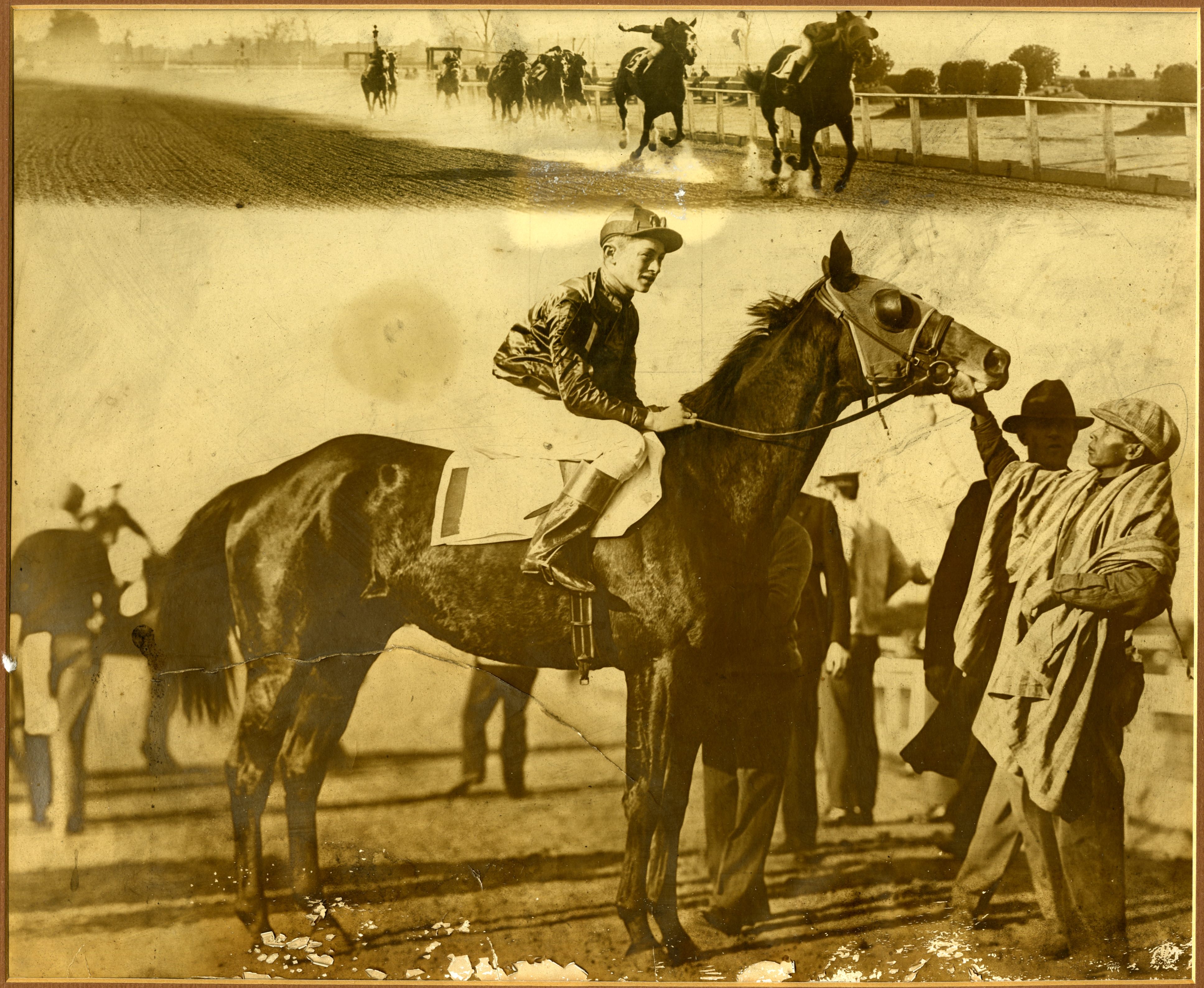 Among its collections, the OJA has records documenting a range of professions: architects, boxers, lawyers, nurses, physicians, photographers, rabbis, teachers, and many more. One profession it did not have records for was that of jockey—that is, until now! Morris "Murray" Rose was born in Poland came to Canada as a youngster. Instead of completing high school, Murray ran away from home and became a stable boy before becoming a jockey. After suffering a serious head injury, Murray retired from horse racing and went into business. The records, which were donated by Murray's daughter-in-law Roz, includes four photographs of Murray, three of which show him atop horse.
Among its collections, the OJA has records documenting a range of professions: architects, boxers, lawyers, nurses, physicians, photographers, rabbis, teachers, and many more. One profession it did not have records for was that of jockey—that is, until now! Morris "Murray" Rose was born in Poland came to Canada as a youngster. Instead of completing high school, Murray ran away from home and became a stable boy before becoming a jockey. After suffering a serious head injury, Murray retired from horse racing and went into business. The records, which were donated by Murray's daughter-in-law Roz, includes four photographs of Murray, three of which show him atop horse.
February 2022
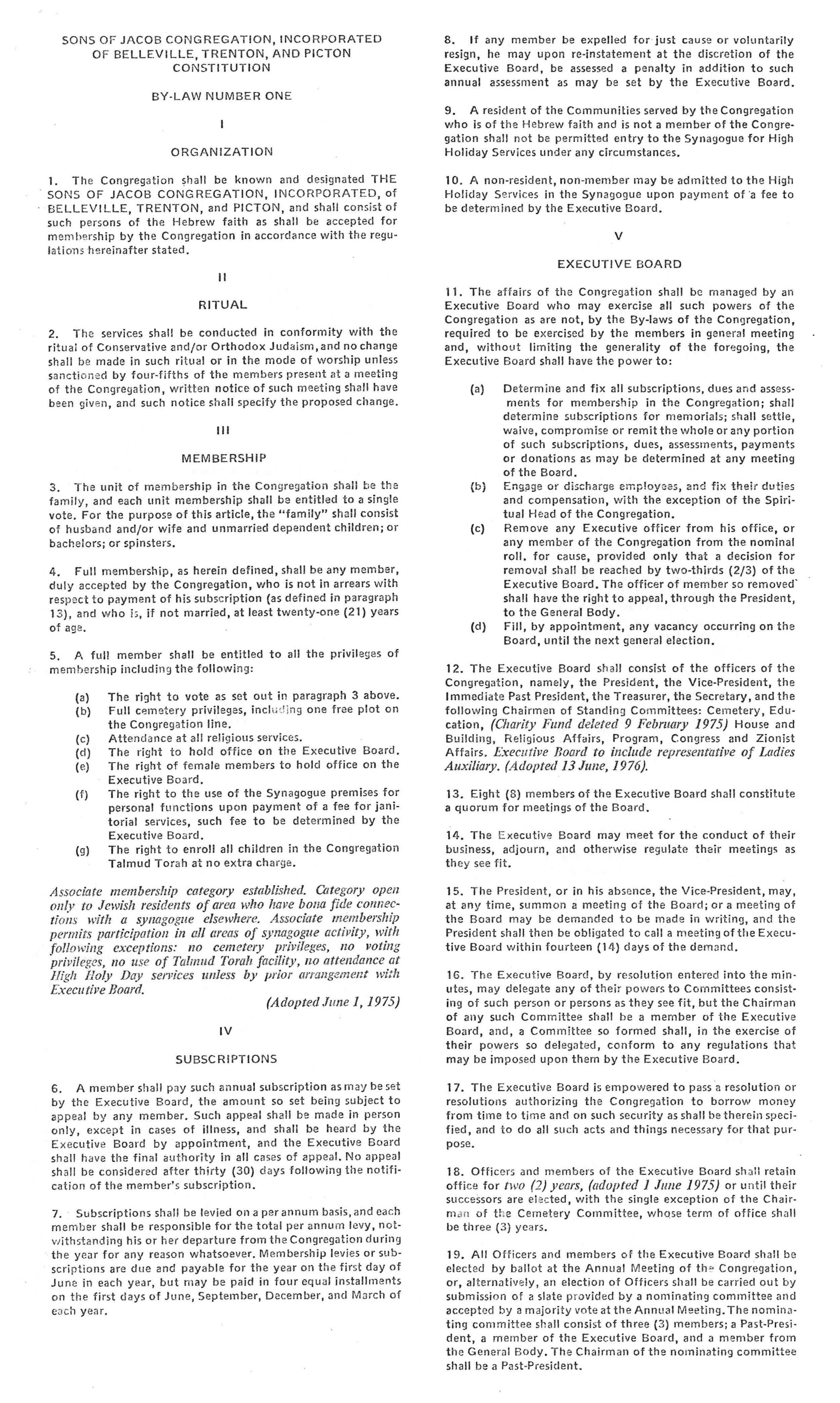 In February, Mike Jourard donated records documenting Belleville's Sons of Jacob Congregation. The records had belonged to Mike's parents, both of whom were active in the congregation (Mike's mother was the secretary for a time). Included in the accession are meeting minutes, handwritten notes, and a copy of the constitution (shown here). According to its website, the congregation has approximately sixty members who hail from Belleville, Trenton, and nearby; in addition, services are sometimes attended by non-members, who are also welcome. And while the constitution specifies that "services shall be conducted in conformity with the ritual of Conservative and/or Orthodox Judaism," the presence of members from a variety of Jewish backgrounds means that services are conducted in both English and Hebrew according to multiple traditions. The OJA is pleased to acquire these records, not only because synagogues are an important centre of Jewish life but because Belleville is a city for which the OJA would like to have more documentation.
In February, Mike Jourard donated records documenting Belleville's Sons of Jacob Congregation. The records had belonged to Mike's parents, both of whom were active in the congregation (Mike's mother was the secretary for a time). Included in the accession are meeting minutes, handwritten notes, and a copy of the constitution (shown here). According to its website, the congregation has approximately sixty members who hail from Belleville, Trenton, and nearby; in addition, services are sometimes attended by non-members, who are also welcome. And while the constitution specifies that "services shall be conducted in conformity with the ritual of Conservative and/or Orthodox Judaism," the presence of members from a variety of Jewish backgrounds means that services are conducted in both English and Hebrew according to multiple traditions. The OJA is pleased to acquire these records, not only because synagogues are an important centre of Jewish life but because Belleville is a city for which the OJA would like to have more documentation.
January 2022
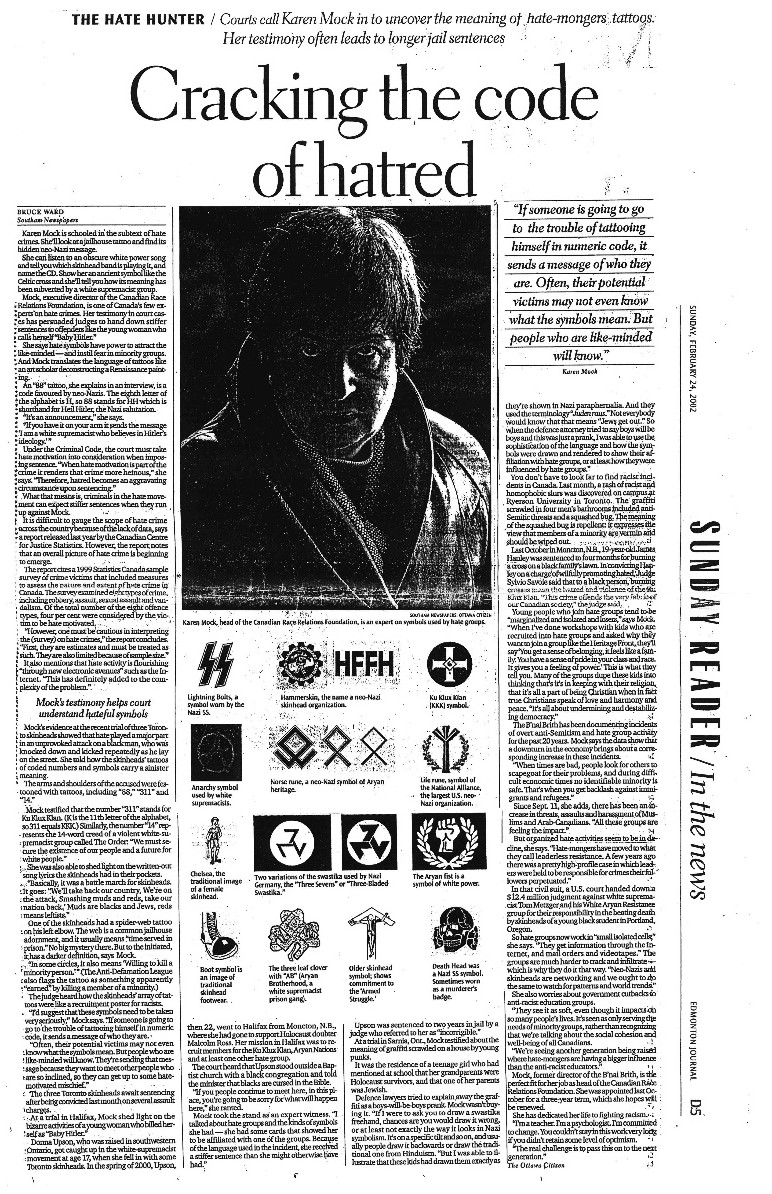 According to University College's Alumni of Honour webpage, "Karen Mock is an educator, psychologist and human rights consultant, specializing in equity and diversity issues and intercultural/interfaith dialogue." In January, the OJA received two donations of material documenting, among other topics, Karen's involvement with the UN World Conference Against Racism and the International Jewish Caucus. In addition to more public-facing materials such as these, the acessions include photographs and negatives documenting Karen's family. As well as being a founding member of multiple social justice organizations such as the Antiracist Multiculturalism Network of Ontario, Karen serves on the board of the Canadian Peres Centre for Peace and JSpaceCanada. The latter describes itself as "one-stop-shop for discussions around social justice, peace, and civil rights, both in Israel and Canada." The OJA hopes to receive more records in the future documenting Karen's varied activities.
According to University College's Alumni of Honour webpage, "Karen Mock is an educator, psychologist and human rights consultant, specializing in equity and diversity issues and intercultural/interfaith dialogue." In January, the OJA received two donations of material documenting, among other topics, Karen's involvement with the UN World Conference Against Racism and the International Jewish Caucus. In addition to more public-facing materials such as these, the acessions include photographs and negatives documenting Karen's family. As well as being a founding member of multiple social justice organizations such as the Antiracist Multiculturalism Network of Ontario, Karen serves on the board of the Canadian Peres Centre for Peace and JSpaceCanada. The latter describes itself as "one-stop-shop for discussions around social justice, peace, and civil rights, both in Israel and Canada." The OJA hopes to receive more records in the future documenting Karen's varied activities.